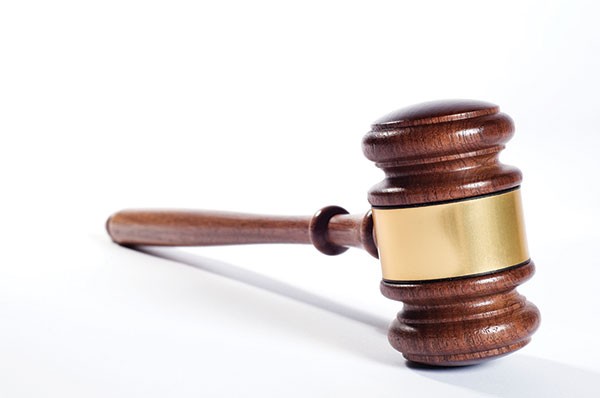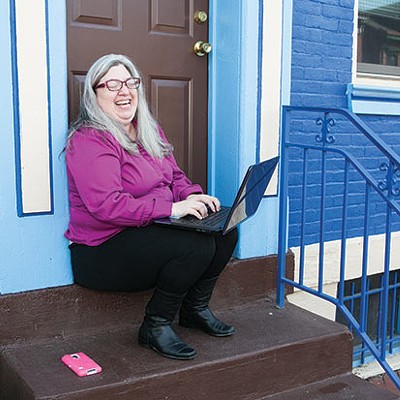It's an image torn out of your high-school civics textbook: the earnest American citizen canvassing for neighbors to sign an election petition.
But there's another part of the democratic process: the part where some other neighbor files a lawsuit to have those petitions invalidated, ending a political campaign almost before it gets started. American democracy may have been founded by people petitioning government with their gripes ... but it's practiced partly by people griping about each other's petitions.
That was the business before Common Pleas Court Judge Joseph James on March 21st. As happens every election season in Allegheny County, James hears objections to election petitions while playing a variety of roles: jurist, handwriting-analyst, observational humorist.
"Take it easy on those tables," James jests when Jerry Chiappinelli, treasurer of the Penn Hills Democratic Committee, sets down a metallic briefcase filled with challenged petitions. "They're antiques."
Probably every judge can count on an appreciative audience for his courtroom jokes. But there's additional reason to welcome James' wry commentary today: Watching a judge compare signatures on petitions to those on voter-registration cards is not exactly the stuff of courtroom drama. And this year's proceedings are especially tedious, focused as they are on bids to join the county's Democratic committee.
Committeepeople are a party's foot soldiers, responsible for turning out voters on Election Day. They also vote in the party's pre-primary endorsements, which can be very helpful to candidates in other races that voters never think about — like judicial contests. Committee races are the kind that don't matter until they suddenly do ... like when a committeeperson allegedly gets, or loses, a government post because of political connections. Or when a committee endorsement determines who will be hearing your divorce case five years from now.
And to run for a committee spot, all you need is 10 signatures — one of which can be your own! — from people qualified to vote for the office you're seeking. All those 10 people have to do, meanwhile, is print and then sign their name, enter their address, and the date.
Yet, all morning long and into the afternoon, James is compelled to strike petitions — often with a weary sigh.
Here's a candidate who didn't sign his own petition ... and ended up one signature short. Here's the woman who got all the signatures she needed, without realizing until too late that one of her signatories had already signed another petition in the same race. Then there's the Democratic committee candidate who got bounced because his petition was signed by a member of the Constitution Party. ("You don't see that every day," James observed.)
In addition to Penn Hills — where Chiappinelli wins 14 of 18 challenges — James also hears disputes from the city's North Side and South Hills, where politicos tied to Mayor Bill Peduto are causing headaches for neighborhood leaders like Beechview's Pete Wagner, the longtime chair of the city's 19th Ward Democratic Committee. A former Wagner ally, Anthony Coghill, has recruited a slate of candidates to challenge his one-time mentor: The last time that happened, four years ago, resentment between the two camps nearly boiled over into a physical altercation in an elementary-school parking lot.
For most of us, the amazing thing is that anyone cares enough to run at all, or to prevent someone else from running. But as big money crowds out everything else, these hyperlocal races are among the few political contests where an ordinary citizen can take on the powers that be. A committee race is politics in its purest — which is to say its most aggravating — form.
And the results aren't always pretty. National-level politics is ugly because you don't really know the candidates, and while their campaign consultants can predict your voting behavior to 10 decimal places, they don't really know you either. When local politics gets ugly, meanwhile, it's usually because everyone knows each other all too well.
But not always. Even Pittsburgh's political culture can be full of surprises these days. Just ask the would-be committeeman from Beechview who saw his petition disallowed because his signatories included, as James jokes, "probably the only Republicans living in the 19th ward."
A moment later, James sees Wagner sitting in the back of the courtroom and asks, Where are all these GOP voters in Beechview coming from?
"Things are changing," Wagner says.
And they are, even here.



















